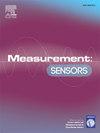Pioneering CPMI framework for accurate state-of-health assessment in Lithium ion battery power management using FBG sensors
Q4 Engineering
引用次数: 0
Abstract
Continuous monitoring of the State of Health (SOH) in Lithium-ion (Li-ion) batteries is crucial for ensuring operational reliability and safety in powered devices. This paper presents a novel Classifier-Pursued Maintenance Index Scheme (CPMI) that leverages Fiber Bragg Grating (FBG) sensor measurements for sustainable SOH monitoring and maintenance scheduling. The CPMI framework processes real-time temperature and strain measurements from strategically placed FBG sensors during charge-discharge cycles to estimate battery capacity degradation and determine maintenance requirements. The proposed system employs a support vector-based classification algorithm that categorizes operational states based on FBG sensor data streams, identifying deviations from optimal temperature and voltage ranges. This classification approach generates a quantitative maintenance index that enables systematic assessment scheduling rather than arbitrary inspections. Experimental validation over 200 charge-discharge cycles demonstrates the CPMI system's effectiveness, achieving a maintenance state identification accuracy of 0.95, 75 % classification success rate, classification latency of 0.1 s, precision exceeding 0.95, and an assessment reliability of 0.98. Integrating FBG sensors with the CPMI framework provides a robust Li-ion battery SOH monitoring solution, enabling predictive maintenance strategies and enhanced power management capabilities. The proposed system demonstrates significant potential for improving battery lifecycle management and operational reliability in various applications.
开创性的CPMI框架,用于使用FBG传感器对锂离子电池电源管理进行准确的健康状态评估
持续监测锂离子(Li-ion)电池的健康状态(SOH)对于确保供电设备的运行可靠性和安全性至关重要。本文提出了一种新的分类器追踪维护指数方案(CPMI),该方案利用光纤布拉格光栅(FBG)传感器测量实现可持续的SOH监测和维护调度。CPMI框架处理在充放电周期中策略性放置的FBG传感器的实时温度和应变测量,以估计电池容量退化并确定维护需求。该系统采用基于支持向量的分类算法,根据光纤光栅传感器数据流对运行状态进行分类,识别偏离最佳温度和电压范围的情况。这种分类方法产生了定量的维护指标,使系统的评估和调度成为可能,而不是随意的检查。200多个充放电循环的实验验证验证了CPMI系统的有效性,实现了维护状态识别正确率0.95,分类成功率75%,分类延迟0.1 s,精度超过0.95,评估信度0.98。将FBG传感器与CPMI框架集成,可提供强大的锂离子电池SOH监测解决方案,实现预测性维护策略和增强的电源管理能力。该系统在各种应用中具有改善电池生命周期管理和运行可靠性的巨大潜力。
本文章由计算机程序翻译,如有差异,请以英文原文为准。
求助全文
约1分钟内获得全文
求助全文
来源期刊

Measurement Sensors
Engineering-Industrial and Manufacturing Engineering
CiteScore
3.10
自引率
0.00%
发文量
184
审稿时长
56 days
 求助内容:
求助内容: 应助结果提醒方式:
应助结果提醒方式:


